Things You Should Know Before Buying a House in Puerto Rico
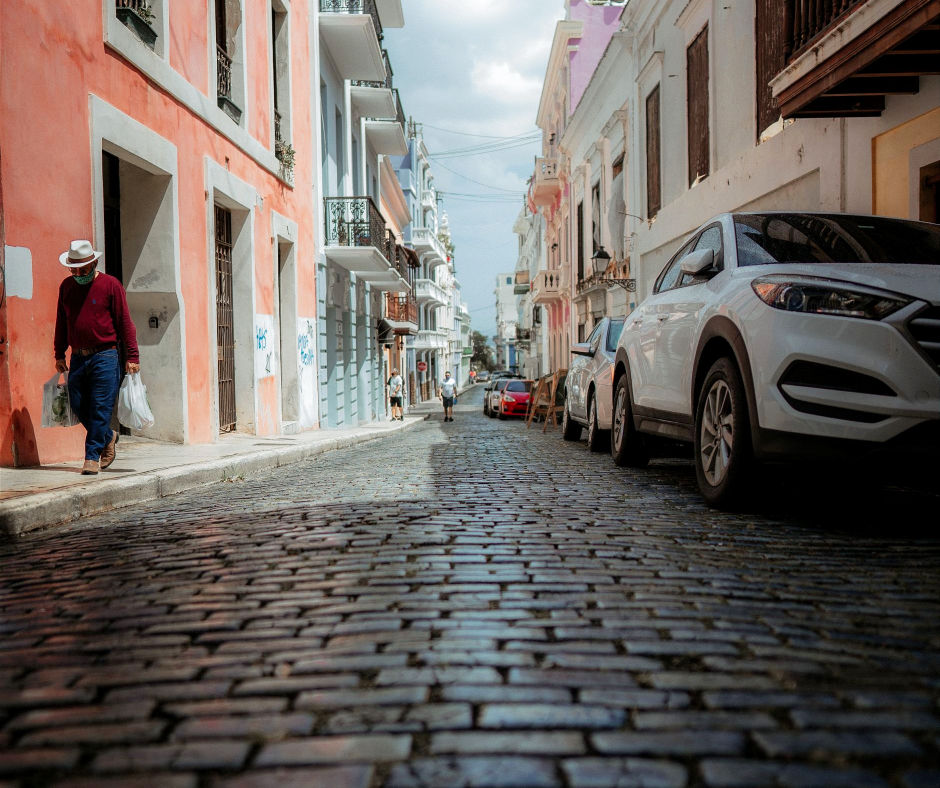
This guide covers things you should know before buying a house in Puerto Rico. The island of Puerto Rico offers prospective homebuyers an attractive array of benefits, whether you are looking to move there permanently by purchasing a primary home, acquiring a second home for vacations or retirement, or gaining an asset with an investment property. Alex Carlucci, who is a senior mortgage loan officer at GCA Forums Mortgage Group, provides the following information about what you should know before buying a house in Puerto Rico:
Advantages include a lower cost of living than the mainland, tax benefits for both citizens and businesses, a thriving and vibrant culture that is largely bilingual, and a year-round climate abundant with sunny days.
Because the island is a territory of the United States, Americans can transition with the relative ease of moving between states, as most banks, documents, and governmental programs operate interchangeably, with the bonus of never being more than a short drive away from several of the world’s highest-ranked Most Beautiful Beaches. In the following paragraphs, we will give you an overview of things you should know before buying a house in Puerto Rico.
Tax Incentive Pros of Buying a House in Puerto Rico
Understandably, one of the biggest draws of moving and buying a house in Puerto Rico for investors, corporations, and residents alike is the myriad of generous tax benefits. American citizens who buy a home in Puerto Rico do not need a residency permit, maintain their U.S. citizenship, and keep government benefits such as Medicaid, Medicare, and Social Security while avoiding U.S. federal income tax on capital gains. All income from Puerto Rico is exempt from U.S. federal and state income taxes.
Law 187 exempts residents and new homebuyers from paying property taxes for five years in addition to certain closing costs for purchasing a property or residence. Once they begin making payments, property taxes are considerably lower than in most U.S. states.
Receiving a fixed income tax rate of 4% on export services income, a 50% property tax exemption on both real and personal property taxes (100% tax exemption during the first five years for companies with a volume below $3 million), and up to 75% off select municipal taxes, including 50% off municipal license taxes (100% municipal license taxes for businesses with a volume below $3 million), are just a few of the Puerto Rico tax breaks that make the island a smart financial move for many investors.
Ready to Own a Home in Puerto Rico? Let’s Secure Your Mortgage Today!
Contact us today to explore your financing options and get pre-approved for your Puerto Rico mortgage.
Negatives of Buying a House in Puerto Rico
Hurricanes are one of the negatives of buying a house in Puerto Rico. While the island has been rebuilding, repairing, and improving its infrastructure since Hurricane Maria in 2017, the fact remains that Puerto Rico is located in a hurricane zone and is susceptible to natural disasters. Purchasing property in Puerto Rico will always carry the potential risk of homeowners facing problems caused by hurricanes, earthquakes, heavy winds, and floods.
Just be aware that when you buy a home in Puerto Rico, you may wait a few extra minutes in line at the grocery store while the cashier enjoys socializing at the checkout.
Because the electrical grid and water supply remain unreliable throughout the island, properties are becoming more self-sustaining with solar panels, oversized water cisterns, and industrial generators. If the property you want lacks these features, you may need to install them. It is also worth noting that the internet and WiFi connections are equally untrustworthy during these storms and outages.
How Do You Get Approved For a Mortgage in Puerto Rico
If you’re like many homebuyers, you must obtain funding to purchase your Puerto Rico home. Evidence of funds, whether a letter of preapproval for a loan or proof of sufficient funds for a cash offer, is required in Puerto Rico before you ever step foot on the property. Due to its status as an American territory, lending is possible for U.S. citizens as opposed to other Latin American countries. However, shopping for a lender can become quite complicated.
While many mainland lenders and Big Box brokers claim to accommodate loans in Puerto Rico and other U.S. territories, many are not licensed to do so or have not done so since 2009. (U.S. regulators seized and shut down three major Puerto Rico banks between 2009 and 2010 due to an abundance of bad construction loans and other unqualified home loans, leading mainland institutions to refuse further funding to the island.)
Recently, GCA Forums Mortgage Group and other mainland mortgage lenders have recognized this widely overlooked potential and taken the opportunity to plant seeds of investment for qualified homebuyers in Puerto Rico again. Areas like San Juan, Dorado, Palmas del Mar, Rincon, and Mayagüez have already seen an influx of American buyers returning to the island, and mainland realtors and investors are taking notice. Because the GCA Forums Mortgage Group team is licensed in Puerto Rico and has partnered with over 210 wholesale lending partners, we can offer mortgage products, lower rates, and options unavailable to other lenders.
Click here to talk to one of our loan officers about how you can take advantage of Puerto Rico’s tax incentives, lower cost of living, breathtaking beaches, and more.
Buying a House in Puerto Rico To Be Living The Dream
If you’re a fan of clicking “Next Day Delivery” on your Amazon Prime account, you should know it does not exist on the island. Although your packages are not international, shipping between the mainland and Puerto Rico typically takes longer and is pricier than domestic shipping.
Using freight means your shipment must first be unloaded at the port in San Juan and then transported to its destination throughout the island. In general, packages can take 3-10 business days with express delivery methods and 10-20 delivery days with slower methods. Larger items, such as vehicles, can take even longer. Most residents don’t mind the extra wait.
If you are a business owner who needs to anticipate running out of product or passing these additional shipping costs to your consumers, you must consider it. Living on “island time” also extends to daily life. Locals don’t usually honor the “fast lane/slow lane” rule that many Americans are accustomed to; doctor’s offices may schedule several people for the same appointment slot. Professionals respond more slowly and don’t always work within typical business hours.
Why So Many Americans Buy Second and Retirement Homes in Puerto Rico
While Puerto Rico’s year-round warm climate and beautiful views make it a famous tourist destination, the island also boasts several financial perks for retirees looking to avoid the congestion of Florida retirement communities or the high price tag associated with the California coastline. Again, many families, retirees, and vacationers enjoy this less stressful lifestyle without strict timetables and choose to value comfort over punctuality. Dale Elenteny, a senior mortgage loan originator at GCA Forums Mortgage Group, says the following about buying a house in Puerto Rico:
Buying a house in Puerto Rico is more affordable for U.S. residents on a tight budget. Their Medicare card applies throughout the island, allowing older citizens to receive the same care they would receive stateside.
Snowbirds (those who wish to remain in the States in the summer months but escape the cold weather during the winter) find purchasing a home in Puerto Rico particularly attractive because they can easily and profitably rent it out during the off-season. The revenue helps offset the cost of owning a second home and provides a steady income stream. The number of rental management companies and housekeepers makes the process even easier.
Buying a House in Puerto Rico With Young Children
One of the greatest things about Puerto Rico is that residents still share a family-oriented mentality reminiscent of 1950s neighborhoods. However, families with school-aged children should be aware of some complications they may face when buying a home in Puerto Rico. Public schools are extremely underfunded, have low academic quality, and lack updated resources.
English is taught as a secondary language and a compulsory course from elementary through secondary levels; however, Spanish is the language taught in Puerto Rican public schools. Because of these reasons, many expat parents and residents prefer to send their children to private schools.
Private institutions generally have higher educational standards, more material resources, and fewer teacher shortages. English or bilingual education is the medium of instruction in most private schools in Puerto Rico. A few private schools on the island offer the International Baccalaureate (IB), which is especially attractive to parents as it is globally accepted and allows students to transfer between schools without a disruptive shift in curriculum easily.
Education System in Puerto Rico
Another element to consider when choosing an educational institution in Puerto Rico: More and more Puerto Rican schools are becoming year-round, which means students still receive an equal number of days off, but those days are interspersed with shorter breaks and intercessions throughout the academic year rather than traditional American schools that consist of a 180-day school year with an extended summer break.
Homebuyers must complete a homebuyer education course to get a down payment assistance program. Not all mortgage lenders have the same lending requirements, so secure the mortgage from a participating lending institution. Once approved, homebuyers must move into the new home within sixty days of closing.
These programs usually allow students to celebrate Puerto Rican holidays, such as Three Kings Day, and participate in many Catholic traditions. in many Catholic traditions. Parents who use the three-month holiday to travel, visit family, or otherwise use those summer months’ dates will want to remember the dates before purchasing a home in Puerto Rico. Private schools can be expensive, so American parents should ensure that their budgets allow for tuition, fees, extracurricular expenses, tutors, and other schooling costs when deciding if a move to Puerto Rico is right for their family.
Things To Be Concerned About When Buying a House in Puerto Rico
Parents with underage children should be aware of a marked shortage of pediatric services. While many general practitioners in Puerto Rico advertise their offices as ” family practices,” fewer pediatricians, dentists, and other pediatric specialists are available. Many islanders speculate as to the reason.
Business owners and investors are attracted to moving their companies or business interests to the island thanks to the legislation enacted in Puerto Rico, including Act 20 (the Export Services Act), Act 22 (the Individual Investors Act), and Act 60 (the Puerto Rico Incentives Code Act). Businesses that utilize some or all of these incentives receive significantly reduced taxes.
It could be that the number of retiring specialists is not being replaced with younger graduates, that the most popular medical plans in Puerto Rico do not give adequate remuneration for pediatric services, that the majority of pediatric residents transfer to institutions outside of Puerto Rico to complete their specialty, or a likely combination of them all – regardless of the explanation, expat parents will want to keep this in mind when choosing an area in which to purchase their home (rural communities have fewer options while more populated regions have more).
Dreaming of a Home in Puerto Rico? Let’s Help You with Your Mortgage!
Contact us today to discuss your options, and let us help you navigate the process.
Buying a House in Puerto Rico For First-Time Homebuyers
Do you dream of buying a house in Puerto Rico? Have you decided to purchase your own home? Have you been dreaming of buying a house in Puerto Rico as your first home? Living in Puerto Rico can make your dream attainable. So, is buying a home in Puerto Rico the right choice for you? As with all major investment decisions, purchasing property in Puerto Rico has potential risks. John Strange, a senior mortgage loan originator at GCA Forums Mortgage Group, says the following about buying a house in Puerto Rico:
The government of Puerto Rico has established its own Homebuyer Assistance Program to provide direct financial assistance of up to $55,000 to first-time buyers who want to purchase property in Puerto Rico.
The program uses CDBG-DR (a subset of Disaster Recovery) funds to help homebuyers by paying up to 100% of the down payment required by the mortgage for the purchase, paying closing costs, and working with the applicant’s lender to submit all closing documents to the Puerto Rico Housing Finance Authority.
Getting Started Buying a House in Puerto Rico
The first step in preparing to buy a house in Puerto Rico is qualifying for a mortgage. First-time and seasoned homebuyers can qualify for government or conventional loans with little to no down payment on primary owner-occupant homes. Homebuyers buying a house in Puerto Rico can get FHA, USDA, VA, or conventional loans. Buying a house in Puerto Rico with FHA loans requires a 3.5% down payment. VA and USDA loans offer 100% financing without a down payment. Fannie Mae and Freddie Mac require a 3% down payment on conventional loans for first-time homebuyers and a 5% down payment for seasoned homebuyers.
Mortgage loan applicants must not own a home at the time of the application if they plan on buying a house in Puerto Rico with a government or conventional loan with little to no down payment. Borrowers buying a house in Puerto Rico must be U.S. citizens, non-citizen nationals, or qualified aliens. Applicants must meet agency income and credit requirements.
It is important to research, discuss your options with your mortgage broker, and weigh the pros and cons before drawing an informed conclusion. Many people dream of owning a house in Puerto Rico. You can contact us to qualify for a home mortgage or investment property in Puerto Rico. If you have any questions about the content in this blog or need to get pre-approved and discuss your specific needs and circumstances with our industry expert loan officers, contact us or email us. If you are ready to talk with an advisor who can help you achieve your goals, the stunning beaches, warm culture, and tax benefits make Puerto Rico a wonderful place to consider buying a house. However, there are unique factors to consider before making a purchase. Below is an up-to-date brief overview of what to consider:
Learn the Landscape of the Real Estate Market: Buying a House in Puerto Rico
- Cost Benefit: Housing in Puerto Rico is approximately 21% less expensive than in the mainland U.S., which is a plus for buyers seeking cheaper options.
- Market Developments: San Juan, Dorado, Palmas del Mar, and Rincon are accelerating.
- Still, other parts of the island may have stagnant property values.
- There is a high demand for luxury homes and vacation rentals in coastal areas.
- Volatility and Investment Potential: The market can be volatile, with risks from natural disasters like hurricanes impacting property values.
- However, tax incentives like Act 60 make Puerto Rico appealing to investors, offering benefits such as 0% capital gains tax and a 4% corporate tax rate for eligible buyers.
Other Noteworthy Buying Issues
- The mainland U.S. uses standard purchase offer contracts, but Puerto Rico does not.
- Prenegotiation requires a lawyer due to the tailored nature of these contracts.
- Single-Agent Model: To have representation, the buyer might have to work with several agents or agree to a buyer-broker contract because, in most cases, only the seller’s agent is involved.
- Closing Procedures: All signatories must be present in person at the lending bank, and the process can take several hours due to extensive paperwork.
- A notary (an attorney licensed in Puerto Rico) completes the closing, and buyers usually pay between 1.15% and 2.5% in various fees, such as registration, Hacienda stamps, and attorney fees.
- Deposits: Along with the listing broker’s trust, Puerto Rico is less common with escrow accounts, so expect to pay a 5-10% deposit.
Obstacles in Financing
- Mortgage Terms: A healthy credit score coupled with a 20% down payment is standard. However, FHA loans permit 3.5% down but with a cap on the total amount borrowed (i.e., $356,362 in 2021).
- Often, local banks have the upper hand compared to U.S. mainland banks, which infrequently lend in Puerto Rico.
Spanish-speaking Avoidance
If Spanish is not your forte, partner with a mortgage broker fluent in English.
Legal And Due Diligence Aspects
Engage a Lawyer:
A local attorney is indispensable to Puerto Rico’s property laws. They can help you navigate Puerto Rico’s unique property laws, including complex inheritance laws that may require signatures from several heirs to sell a property.
Title and Inspections:
- Puerto Rico’s Property Registry can assist you in verifying titles and checking if any liens or encumbrances exist.
- Additionally, because of Puerto Rico’s “as-is” sales culture, thorough inspections for structural issues, hurricane damage, and termite damage are essential.
- In-person viewing: Listings may misrepresent the property and its amenities, so relying on online photographs is dangerous.
Environmental and Infrastructure Risks
- Natural Disasters: Puerto Rico is susceptible to hurricanes, earthquakes, and floods, which impact property and supporting structures for power and water.
- Make sure your property purchase incorporates preventive measures by maintaining sufficient insurance coverage and constructing structures that can withstand these conditions.
- Maintenance: Properties by the coast may require additional upkeep due to dehumidifiers, flood risks, and ocean breezes. Rust caused by salty air is also an issue.
Cultural and Lifestyle Factors
- Language and Culture: Although Puerto Rico is bilingual, public schools primarily teach Spanish, the language of many transactions.
- People visiting for the first time, especially in rural areas, might face difficulties if they do not speak Spanish.
- Education: Public education lacks funding and adequate school and teaching standards, which may cause families to seek private schooling, especially in urban centers like San Juan.
- Community Dynamics: Residents are concerned about rising costs as investors buy properties, driving up prices in areas like Rincón, leading to worries about gentrification.
- Look for matching neighborhoods catering to the gentrification sentiments or community.
Tax Incentives and Residency Requirements
- Act 60 Benefits: Suppose a person is an actual resident spending 183 days in Puerto Rico.
- In that case, citizens of the USA are entitled to 0% tax on capital gains, 4% corporate tax for certain businesses, and dividends under Act 60, which combines Acts 20 and 22.
- Act 60 status requires property purchase within two years.
- Other Expenses: Puerto Rico charges lower property taxes than most U.S. states.
- However, buyers must factor in HOA, condominium, or other recurring maintenance fees.
Buying a House in Puerto Rico: Selecting the Most Appropriate Area
- Most In-Demand Locations: For expats, the most preferred areas are San Juan (cosmopolitan and cultural center), Dorado (luxury gated community), Palmas del Mar (resort-style living), and Rincón (surfing and laid-back).
- Each offers varying degrees of urban and beach lifestyles.
- Safety and Local Service Facilities: Study the safety of the neighborhoods, as crime levels differ from one area to another.
- Can you look at the distance to schools, hospitals, and other essential services, especially in the countryside, where these services are limited?
Buying a House in Puerto Rico: Strategies
- Work with local specialists: Hire a real estate agent and a local attorney in Puerto Rico.
- These two are familiar with the market and legal framework.
- Christie’s International Real Estate and PRelocate assist Puerto Rico clients and offer bilingual services.
- Explore Before Purchase: Travel around different regions to familiarize yourself with the lifestyle and geography, which includes beaches and mountains.
- Document Organization: Store all your documents in cloud storage to avoid losing stacks of paperwork.
Buying a House in Puerto Rico: Social And Ethical Issues
- Gentrification Issues: Pay attention to local attitudes toward international purchasers, as increased prices can push people out.
- Kind community engagement alongside meaningful offers can ease disputes and foster goodwill.
- Social Integration: Learning Spanish and embracing Puerto Rico’s more relaxed lifestyle will help develop rifts with Hispanics and facilitate a smoother transition.
- You can purchase a home in Puerto Rico after researching the market, working with local professionals, and considering environmental and legal factors.
Ready to Buy a Home in Puerto Rico? Get the Right Mortgage for Your Needs!
Reach out now to see how we can help you secure a mortgage and move closer to owning your dream home.

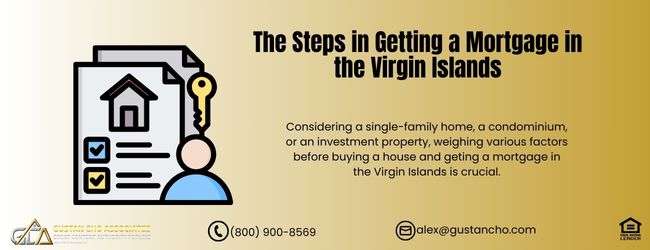
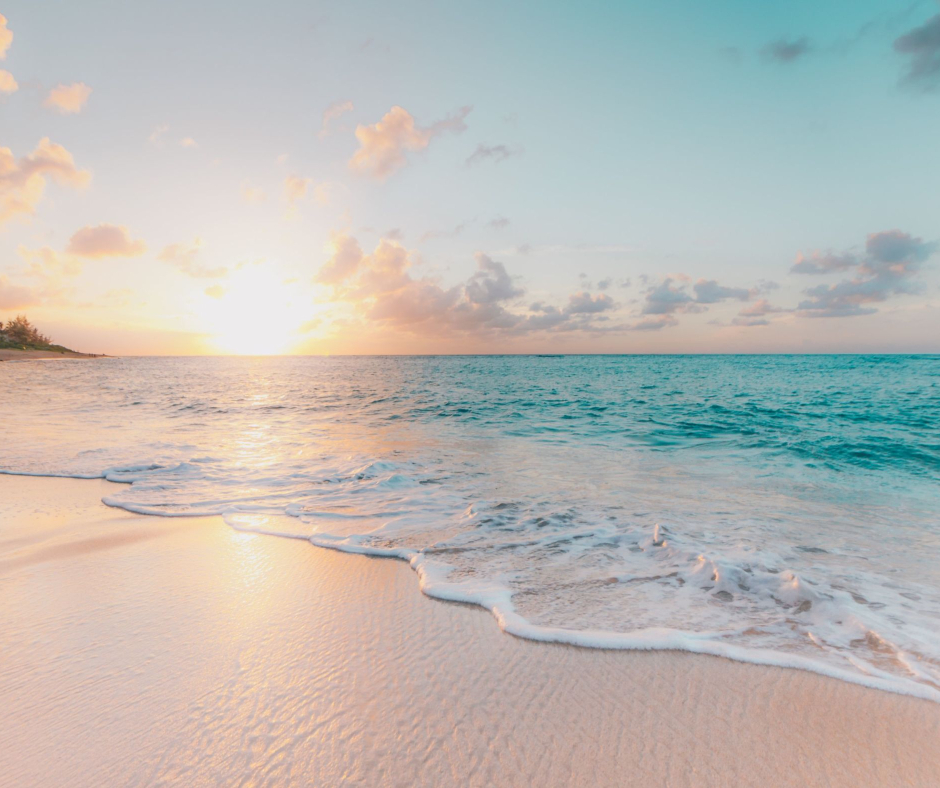
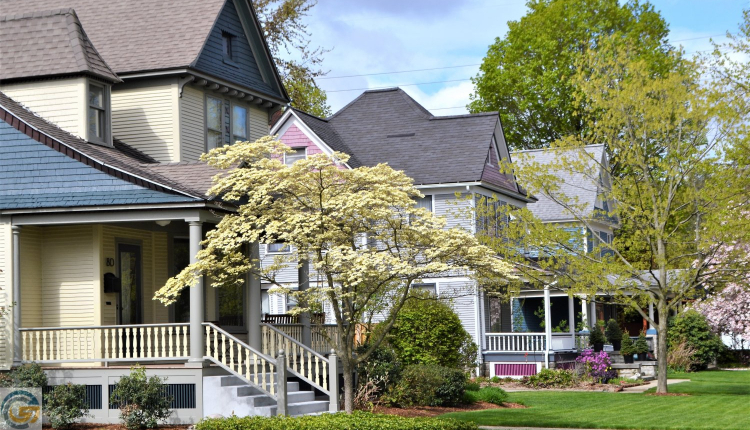
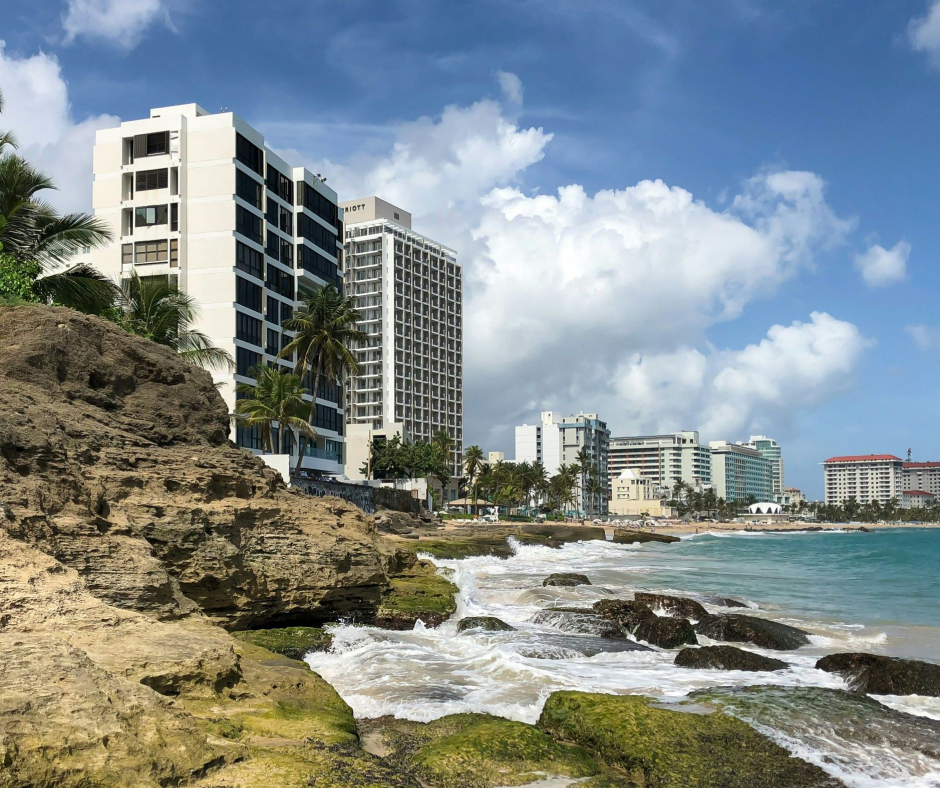

There are very limited amount of wholesale mortgage investors in Puerto Rico 🇵🇷
Is there any restrictions on Americans acquiring property on Puerto Rico? How can I purchase property in Puerto Rico?